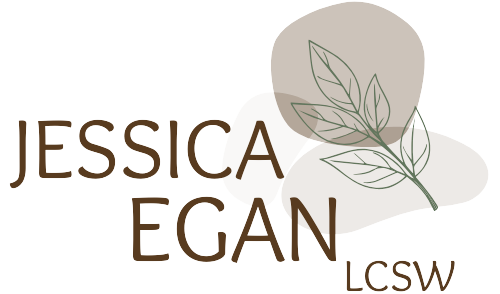How to Build Meaningful Friendships in Your 20s & 30s
As a licensed therapist, one of the most common themes I hear in sessions with clients in their 20s and 30s is the challenge of building—and maintaining—meaningful friendships. This stage of life can be full of transitions: moving to new cities, navigating new careers, shifting relationships, or simply growing into your authentic self. All of these can make it harder to connect deeply with others. And yet, we all crave community, emotional support, and the comfort of being seen and known.
So how do we build healthy adult friendships when life gets busy and vulnerability feels scary?
Give Yourself Permission to Prioritize Friendship
Many of us were taught that friendships are a bonus, something to fit in after work, family, and responsibilities. But friendships are a crucial part of emotional wellness. Adult friendships provide a space for mutual support, laughter, shared experiences, and deep connection—all of which can improve mental health and reduce feelings of isolation or anxiety in our increasingly digital worlds.
Let’s normalize prioritizing friendship like you would any other area of wellness.
Seek Out Value-Aligned Spaces
In your 20s and 30s, your lifestyle may change—and so may the types of people you naturally gravitate towards. We’ve all heard it before, but it can be so valuable to try joining spaces that reflect your interests and values. That could be a local hiking group, a book club, a faith-based group, or even virtual communities centered on shared hobbies or identities.
The key is showing up consistently. Friendships take time and repeated interactions to deepen. Someone we see at book club once a month will take more intentionality to build a deep bond with versus the naturally formed friendships with childhood friends that we saw everyday in between classes and had practice with after school daily. Try to show up without putting so much pressure on things in the early stages.
Make the First Move (Even If It’s Awkward)
Reaching out can feel intimidating, but meaningful friendships rarely fall into our laps. It’s okay to be the one who sends the first text, invites someone out for coffee, or follows up after a good conversation. Yes, it can feel a little vulnerable—but it’s also how trust and connection begin. If you aren’t met with reciprocity, then you know you are one step closer to finding someone who does match your vibe and you know you have the strength to put yourself out there.
Try something simple: “I’ve really enjoyed chatting with you. Want to grab a coffee sometime?” Another low lift strategy: Send that instagram reel of the cute coffee shop you’ve been wanting to check out and offer to take your new friend!
Focus on Depth Over Quantity
In adulthood, you don’t need a huge social circle to feel fulfilled. A few emotionally safe, reciprocal friendships go much further than a long list of acquaintances.
Ask yourself: Who makes me feel most like myself? Who supports me without judgment? Then, invest time and energy in those connections.
Talk About the Hard Stuff
Real friendship isn’t just about fun plans—it’s also about being able to share your struggles, dreams, and fears. Let people in slowly, in ways that feel safe. Vulnerability builds closeness, and you’ll likely find that others are craving deeper connection too.
Start small: “I’ve been feeling a little overwhelmed lately—have you ever felt like that too?”
Accept That Some Friendships Will Shift
As you grow, some friendships might naturally fade. This can feel painful, but it’s often a sign of your changing needs, boundaries, or values. Letting go of certain connections creates space for more aligned, mutual relationships in your life.
Grieve the changes, honor the history—and stay open to what’s ahead.
Building Community Is Part of Healing
Loneliness and disconnection are often tied to anxiety, depression, and burnout. That’s why building community and learning how to ask for support are key parts of the healing process.
If you’re feeling isolated or struggling to connect with others, therapy can help you explore what’s getting in the way and guide you in building the relationships you deserve. Together, we can work on building confidence, setting boundaries, and creating the kind of life and community you want.
💬 Ready to build more meaningful connections? Click here to schedule a free consultation and learn how therapy can support your journey.
📍 Anxiety Therapist Located in San Diego | Virtual & In-Person Sessions Available to California Residents


